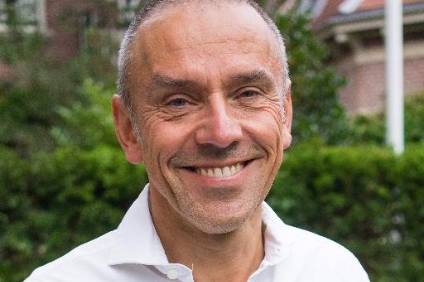
Wessanen, the Netherlands-based food group, enjoyed a solid 2016 and last week forecast stronger growth in sales and operating margins this year. The organic sector is one of Wessanen’s key markets and, talking to just-food at last week’s Biofach trade show in Germany, executive vice president for marketing Klaus Arntz set out where the company sees its growth in the category.
Dutch group Wessanen is among the largest players in Europe’s growing organic food market, with a brand portfolio including Bjorg and Bonneterre in France, Clipper Tea and Whole Earth in the UK and, recently added through an acquisition in the final weeks of 2016, El Granero and Ecocesta in Spain.

Discover B2B Marketing That Performs
Combine business intelligence and editorial excellence to reach engaged professionals across 36 leading media platforms.
The company, which generates around three-quarters of its revenue through organic food, last week reported rising sales and underlying profits for 2016. Wessanen’s reported earnings were affected by restructuring costs but its underlying EBIT was up almost 19%, driven in part by a 9% rise in revenue.
And Wessanen has forecast stronger sales growth and operating margins for 2017. Talking to just-food at the Biofach organic trade fair in the German city of Nuremberg last week, Klaus Arntz, Wessanen’s executive vice president for marketing, says the company’s prospects are bright as it focuses on growing its core business of “healthy, sustainable foods”.
“I can see the organic share of our business easily going above 80% over the next few years,” Arntz says.
While Wessanen gave Clipper Tea prominence at this year’s Biofach, a team from Bonneterre, one of France’s first organic food brands, was also there in force, as well as staff from Italian organic dairy alternative brand Isola Bio and UK rice cake-to-stock brand Kallo.

US Tariffs are shifting - will you react or anticipate?
Don’t let policy changes catch you off guard. Stay proactive with real-time data and expert analysis.
By GlobalData“Clipper has the biggest international footprint for us and the business has grown by more than 50% since we acquired it, but we believe the whole organics market, including food, will continue to grow,” Arntz says. “Organic is now very central to us and so we are here to drive all our organic brands.”
Arntz says Germany, Europe’s largest market for organic food, is, perhaps unsurprisingly Wessanen’s biggest market for organic products. “The overall value of the organic market there was EUR9.48bn (US$9.98bn) in 2016.” He said the UK is Wessanen’s number two market in Europe, where the organic market was worth GBP2.09bn (US$2.6bn) last year. According to Arntz, the value of the organic market in France in 2016 was an estimated EUR6.9bn
The 7.1% rise in organic sales in the UK in 2016 was the market’s fastest rate of growth for nine years, although sales have yet to hit the 2008 high of GBP2.11bn.
Nevertheless, Arntz says the UK market is regaining momentum after falling behind in recent years.
“In terms of the UK, it is a pioneering market for organic but in the last few years it seems organic took a back seat there, partly due to government not driving the organic agenda and partly out of concern by retailers and consumers over the organic price premium,” Arntz said. “But now growth rates in the UK are starting to look very healthy once again.”
“In Western Europe as a whole we are seeing a resurgent organic market,”Arntz said. “Even in Spain, where organic food represents only 1% of total food sales, it is one of the fastest growing markets but starting from a low level.”
The promise that Spain holds for the organic market led to Wessanen striking a deal towards the end of last year to acquire Biogran, which the company described as a “the leading manufacturer and distributor of organic brands in Spain”.
Wessanen has steadily built its organic food market and M&A has been central to that expansion. Last year also saw Wessanen buy French organic tea and coffee supplier IneoBio and Dutch tea brand Piramide.
Isola Bio was acquired two years ago with the purchase of Italian business Abafoods, which came a year-and-a-half after Wessanen snapped up France-based organic and fairtrade food firm France Alter Eco.
On whether there are more acquisitions in the pipeline for 2017, Arntz is coy. “Who can say what will happen?” he says. However, he was clear Wessanen will not be shy in moving to increase the size of its corporate family provided the “overall package” – not just the price – is right, citing as an example another acquisition the company made last year, that of UK gluten-free business Mrs Crimble’s.
“For us it’s not just about the price we are willing to pay for acquisitions. It is a question of whether the company is a genuine fit,” Arntz says. “We are focused mainly on organic, but our purchase of the Mrs Crimble’s gluten-free brand is an example of what we see as being a good fit, because it was still related to our health brands and which is why we were interested. Our space is organic and health and in terms of food that is where it is now happening as far as we are concerned. However, the dairy alternative area is becoming one of the hot properties too.”
Arntz claims Isola Bio is “now a big category for us and we’ve expanded it into more countries”. He adds: “Meat alternatives are also very popular and … we have a range of vegetarian bread spreads, meal options and meat replacers where we are seeing growth.”
However, Arntz stresses “building long-term relationships” with brands and consumers will continue to be one of Wessanen’s guiding principles. “That approach is often important to those who sell companies or brands to us, too,” he added. “People see that we are committed to the product for good and that goes a long way.”





